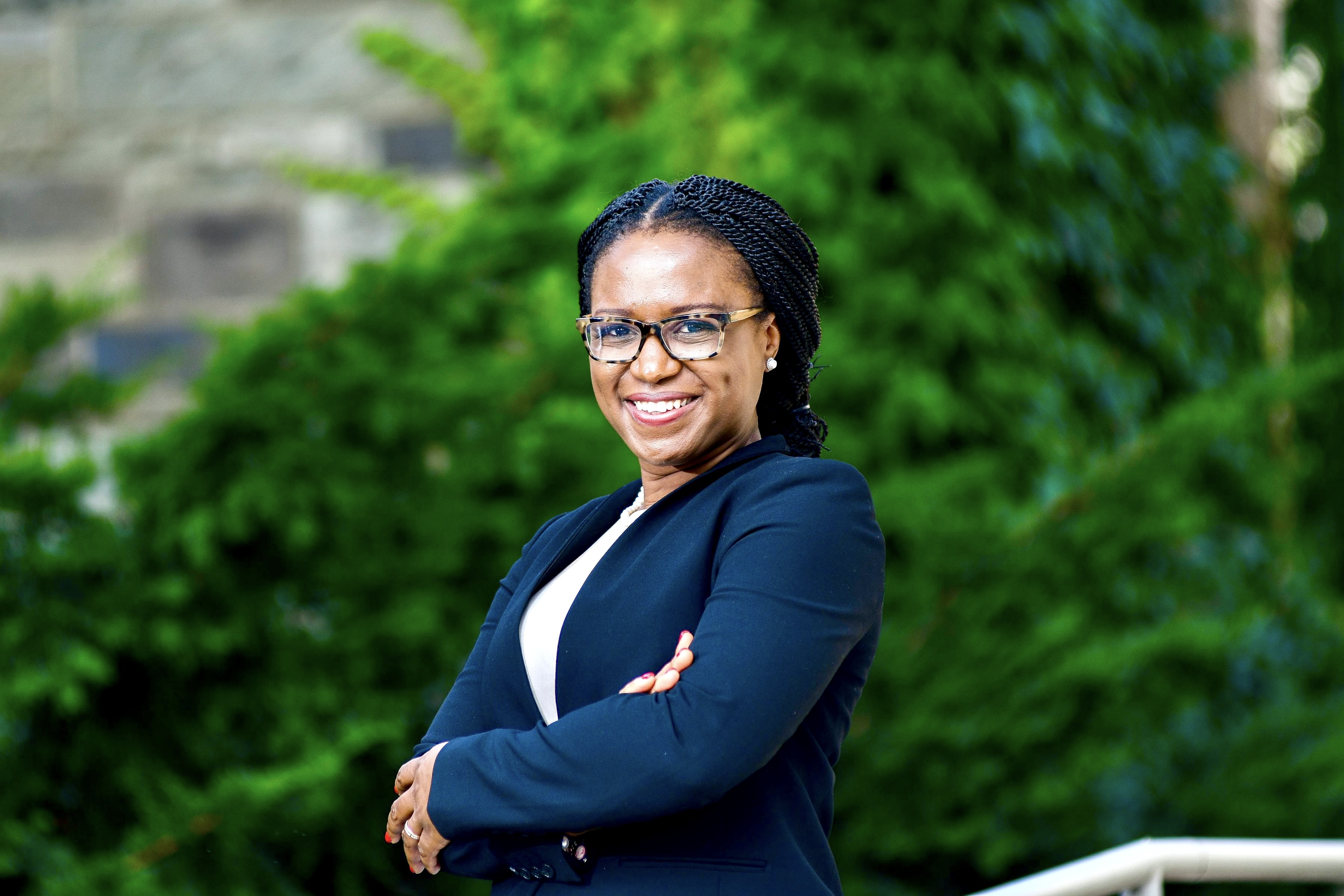Ifeoma Ajunwa, JD, PhD, will join the Emory University School of Law faculty in the fall of 2023, strengthening the school’s offerings in AI and employment law. As AI.Humanity Professor of Law and Ethics, she will be part of the university’s interdisciplinary AI.Humanity Initiative and become the founding director of a program dedicated to AI and the Law. Ajunwa will also serve as associate dean for projects and partnerships at the law school starting in Spring 2024 .
An award-winning multidisciplinary scholar of artificial intelligence, law, and ethics, Ajunwa was recruited from the University of North Carolina School of Law, where she served as the founding director of the AI Decision-Making Research Program. Her scholarship and teaching focus on the intersection of law and technology with an emphasis on the ethical governance of workplace technologies.
In April 2022, Ajunwa visited campus as part of the AI.Humanity Ethics Lecture series, delivering a lecture titled “The Unrealized Promise of Artificial Intelligence.”
“I’m thrilled to be joining Emory Law,” says Ajunwa. “The Emory Law faculty is such a deeply vibrant and welcoming intellectual community. I am honored to join such a world-class faculty in a world-class city.”
“Dr. Ajunwa is a noted scholar and teacher whose insights about the challenges and opportunities associated with AI and the law have been recognized by scholars, lawyers, corporate leaders, and policymakers,” says Dean Mary Anne Bobinski. “Dr. Ajunwa’s focus on AI will complement the work of other nationally and globally prominent Emory Law faculty members who focus on AI, IP and innovation, corporate law, health, and civil rights and social justice.”
A prolific legal scholar and sociologist, Ajunwa has won academic awards including the Fulbright Scholar Award (2021-2022), NSF CAREER Award (2019), and the Derrick A. Bell Jr. Award (2018) from the Association of American Law Schools.
Her broad list of academic publications includes the California Law Review, Cardozo Law Review, Fordham Law Review, and Northwestern Law Review, as well as top law journals for specialty areas including the top journal in law and technology (the Harvard Journal of Law and Technology), anti-discrimination law (Harvard Civil Rights-Civil Liberties Law Review), and employment and labor law (Berkeley Journal of Employment and Labor Law). She has a forthcoming book, The Quantified Worker, with Cambridge University Press. This book will examine the role of technology in the workplace and its effects on management practices as moderated by employment law. Along with Dr. Jeremias Adams-Prasl of Oxford Law, she is also editing a forthcoming Oxford Handbook on algorithmic governance and the law.
Ajunwa is also an engaged public intellectual with an extensive list of bylines. She is a columnist at Forbes and has published op-eds in the New York Times, Nature, Washington Post, Slate and The Atlantic, among others. Her research and legal commentary have been featured by media outlets such as NPR, the Wall Street Journal, CNN, the Guardian, and the BBC.
She testified before the US House Committee on Education and Labor in 2020, and has also spoken before the Consumer Financial Protection Bureau and the Equal Employment Opportunity Commission. A DEI expert, Ajunwa has consulted with Fortune 500 corporations on ethical issues associated with tech and has served as advisory board member for tech companies in Silicon Valley.
During a lecture at Emory University this spring, Ajunwa said, “Emory holds the reputation for being one of the oldest private institutions in the United States with a commitment to justice and inclusion. I see the AI.Humanity Initiative as necessary work for upholding those principles amid the expansion of artificial intelligence.”
Original source can be found here.






 Alerts Sign-up
Alerts Sign-up